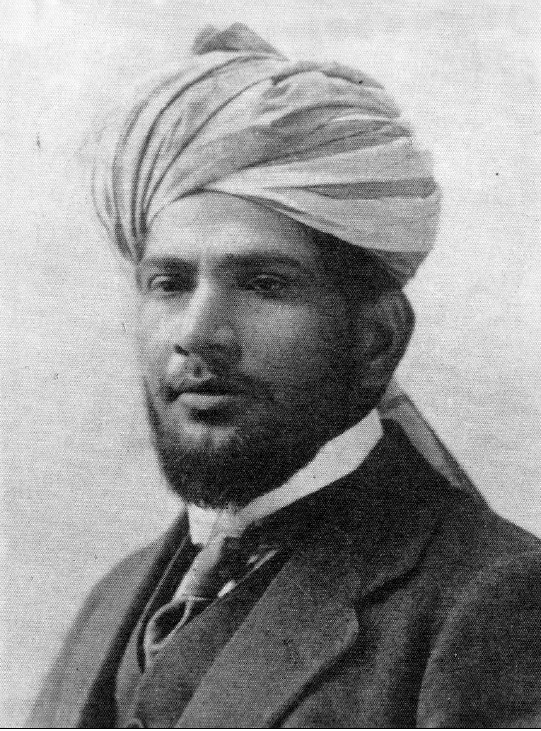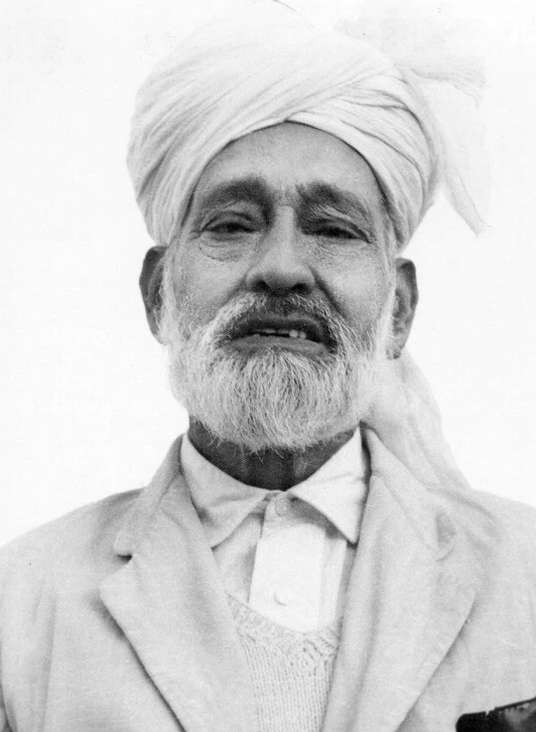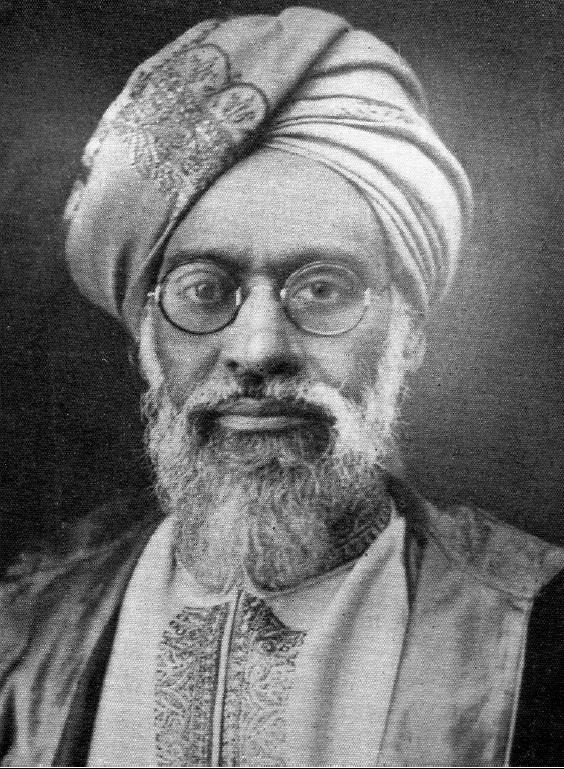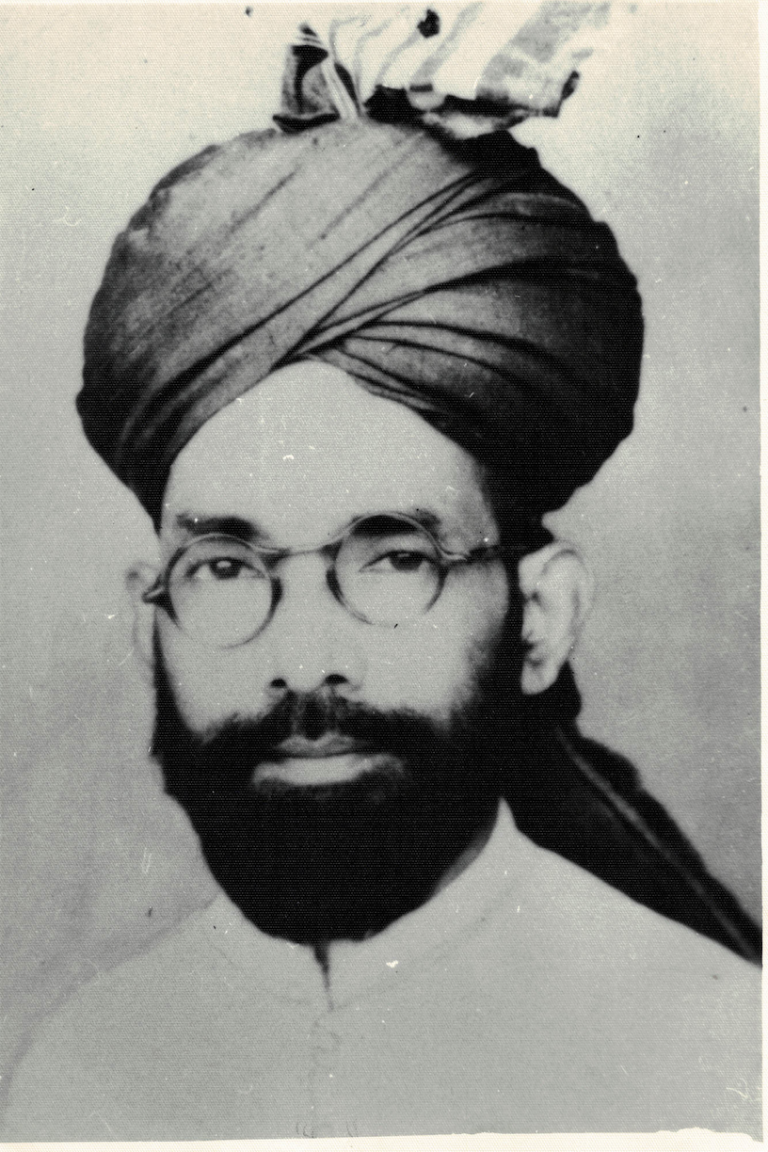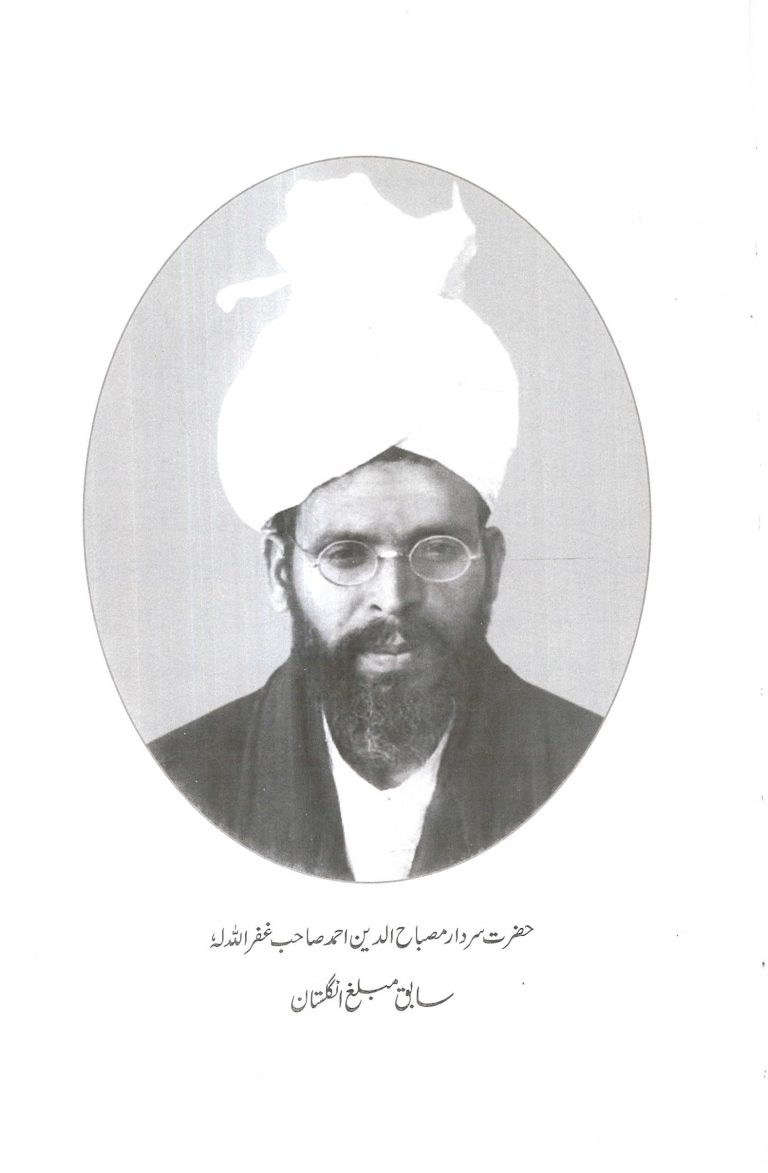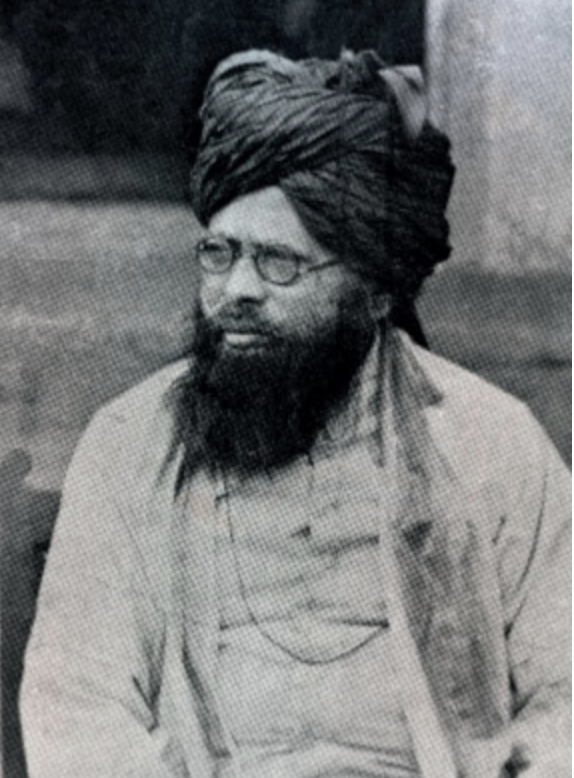Maulana Farzand Ali Khan sahib was born on October 20, 1876, in the Sirih district of Jalandhar. Following his successful completion of the entrance examination, he commenced his career at the headquarters of the Inspector General of Ordnance. In February 1907, he assumed the role of chief clerk. Throughout his tenure, he was stationed in various locations including Calcutta, Shimla, Ferozepur, and Rawalpindi. An ardent advocate for the equitable employment rights of Muslims globally, he actively pursued this cause and achieved significant success. Consequently, Muslims began to be employed based on their abilities and dedication, and once hired, their positions were secure. However, prejudiced non-Muslim individuals raised complaints against him, asserting that he displayed favoritism towards Muslims. Nevertheless, subsequent investigation has proven these allegations to be groundless.
(Taken from Farzand Ahmadiyyat, Author Abdul bari Qayyum Shahid Sahib)
In December 1908, Farzand Ali Khan Sahib made his inaugural visit to Qadian during the annual meeting. The compelling speech delivered by Khalifahtul Masih Al-Awwal, Maulana Nooruddinra, left a profound impression on him. Subsequently, when Farzand Sahib arrived in Firozpur and commenced his endeavors for the collective welfare of Muslims, he actively gathered donations from affluent Muslims to procure books for underprivileged and deserving Muslim students. Furthermore, he distributed the proceeds among them, a commendable initiative that garnered significant popularity. Consequently, he was appointed as the secretary of this noble cause, leading to the commencement of a systematic accumulation of funds specifically designated for impoverished Muslim students. In 1913, he was blessed with the opportunity to perform Hajj in the company of his esteemed father, Maulvi Omaruddin Sahib. In 1920, Farzand Sahib engaged in a debate with Mir Mudassar Shah in Ferozpur, emerging victorious from this intellectual discourse. Subsequently, on June 3, 1922, he participated in his second debate, this time with the renowned Ahl-e-Hadith scholar Maulvi Sanaullah Sahib of Amritsari, once again securing triumph in the debate.
(Tareekh-e-Ahmadiyyat, Vol 20, Page 447-449)
In 1902, Hazrat Farzand Ali Khan Sahib’s maternal uncle, Hazrat Khan Sahib Munshi Barkat Ali Khan Sahib Shamlavi, expressed his allegiance to the cause. Likewise, Farzand Sahib’s mother and maternal grandfather also pledged their allegiance during the same year. Following an extensive period of contemplation and research, Farzand Sahib himself pledged his allegiance to the first Khalifa in 1909. Despite being among the last individuals to undertake this commitment, he demonstrated an unwavering dedication to the service of Ahmadiyyat throughout his life, serving until his very last breath.
(Tareekh-e-Ahmadiyyat, Vol 20, Page 454)
Khan Sahib, with regard to his Bait, recounts the following: On August 1st, 1909, I openly declared my acceptance of Ahmadiyyat to the members of the community. This announcement brought great joy to the Jamaat, and the news was conveyed by Hazrat Khalifatul Masih Al-Awwal. During that period, I used to indulge in smoking shisha. However, after attending the Jalsa, some friends intended to smoke shisha. Recognizing that while the Promised Messiah (peace be upon him) did not explicitly declare shisha as forbidden (haram), he expressed his disapproval of it. Therefore, I made the decision to renounce smoking shisha.
The day following my acceptance of Ahmadiyyat, I arose for Tahajjud prayers. An inner conflict ensued between my conscience and my rational faculties. My mind asserted that, after pledging allegiance, it was imperative to perform Tahajjud prayers. However, my inner self acknowledged that although it was a praiseworthy act, it was not obligatory. Ultimately, my inner self triumphed, reminding me that Allah had awakened me on that day, indicating that I should engage in voluntary (Nafl) prayers. I shared this incident with Huzoor (may Allah be pleased with him), who graciously responded by stating, “Inshallah, you will progress spiritually.”
Following his departure from the administrative role in 1928, Farzand Sahib dedicated the remaining years of his life to the Ahmadiyya movement. For a span of approximately 27 years, he held prominent positions within the Sadr Anjuman Ahmadiyya. Hazrat Musleh Maoodra specifically appointed Farzand Sahib as the imam of Masjid Fazal Mosque in London. Between 1928 and 1933, during his time in England, he fervently propagated the truth with great enthusiasm. From May 1st to October 1936, Farzand Sahib diligently fulfilled his responsibilities at Nazer-e-Amoor-e-Ama. These tasks presented immense challenges, intricacies, and sensitivities due to the Ahrar agitation. He was granted the opportunity to engage with senior personnel and effectively represent the community in accordance with the desires of Hazrat Musleh Maudra. Subsequently, he assumed the role of Nazir Baitul Maal, utilizing all his skills to stabilize the Jamaat’s financial state.
(Tareekh-e-Ahmadiyyat, Vol 20, page 449)
Farzand Sahib made notable contributions to the design and embellishment of the Garden and the adjacent house of the London Mosque. The mosque hosted various delegations for the round table conference. Distinguished figures such as Quaid-e-Azam Muhammad Ali Jinnah, Maulana Ghulam Rasool Mehr, and Alama Iqbal frequented the mosque, continuing to honor it with their visits.
(Al-Fazl, 23rd December 2013, Page 4)
Respected Farzand Khan Sahib’s Last Moments
On May 13, 1946, Farzand Khan Sahib suffered a stroke and requested a leave of absence. The Auditor of Sadr Anjuman Ahmadiyya approved one month of leave. Upon receiving the letters, Hazrat Musleh Maudra stated that there was no need for discussions about taking time off, as Farzand Sahib was working when the stroke occurred. He would continue to receive the full allowance until his complete recovery was achieved. In December 1949, despite his illness, he independently came to Rabwah and resumed his duties overseeing Baitul-Mal. He diligently and sincerely fulfilled this responsibility for nearly four years. On November 26, 1956, he experienced another stroke that left him unable to walk, but his enthusiasm and dedication to religious service remained unaffected. Finally, on June 9, 1995, he passed away.

